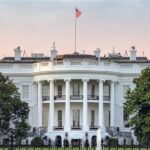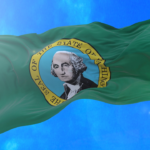Over the objections of the committee’s pro-labor Democrats, the Senate Commerce and Labor Committee recently approved legislation requiring government unions to file certain financial reports with the state each year.
Introduced by Sen. Randi Becker (R-Eatonville), SB 5226 is based on the federal Labor Management Reporting and Disclosure Act (LMRDA).
When Congress passed the LMRDA in 1959 it determined that, in order to protect “the rights and interests of employees and the public generally,” private-sector labor unions should annually report information about union activities, leadership, governance and finances to the U.S. Department of Labor (DOL). Two decades later, in 1978, Congress passed the Civil Service Reform Act, which applied similar protections to unionized federal employees.
State and local employees, however, fall under the jurisdiction of state law. So far, a number of states, including Alabama, Connecticut, Florida, Kansas, Massachusetts and Ohio have adopted LMRDA-style laws to ensure their public-sector unions remain transparent and accountable to the workers they represent. According to a Freedom Foundation analysis (see chart below), more than two-thirds of union workers nationwide are employed in states or sectors in which (1) union dues are voluntary and/or (2) their union must file LMRDA-style financial reports.
In Washington, however, government unions can not only have workers fired for refusing to pay dues, but have no legal obligation to tell the public employee they represent how their dues money is spent.
Testimony on the legislation was somewhat confused and, at times, heated.
In her remarks before the committee, Becker noted, “Our family has experience with unions that have been really good.” She stated,
“I don’t want this bill construed to be an anti-union bill. This bill is actually a bill that gives a sector, the public sector, employees the ability to have the same information available to them that other unions have available… I have people in my district, teachers that came to me that were absolutely appalled that they didn’t know where their money was going. Public-sector folks deserve the same thing as private sector.”
She also headed off an attack that the Washington State Labor Council (WSLC) brought against the bill, which it argued was cut-and-paste model legislation from the American Legislative Exchange Council (ALEC). As Becker pointed out, however, the reason SB 5226 and ALEC’s model legislation look similar is because both bills are based on the exact language of the federal LMRDA.
Following her comments, Sen. Steve Conway (D-Tacoma) questioned Becker about the need for the legislation:
“Union members have access to this information on request to their union. You realize that? … I would like to know the number of union members that requested information like this and haven’t got it, because then it would be a problem, right?”
Of course, no one even attempts to track such numbers, leaving Becker to dryly reply, “I don’t have access to that information, senator.”
Watch Sen. Becker’s comments on SB 5226 below:
Two union lobbyists, Brenda Wiest of Teamsters Local 117 and Joe Kendo of the WSLC, testified against the legislation.
Noting that Teamsters 117 already reports to the DOL under LMRDA, Wiest denounced the bill as “an unnecessary, burdensome and punitive attack on unions” that “provides no benefit to represented employees or the public.”
Kendo expressed similar concerns and, claiming that “many public-sector labor organizations already report this information to the U.S. Department of Labor,” called the legislation “punitive” and described it as “an unnecessary administrative burden placed upon unions who represent public servants.”
Following, Weist’s testimony, Sen. John Braun (R-Centralia) correctly observed,
“…if (Teamsters 117 is) representing public and private (employees), you’re already making these reports this bill is calling for. So this bill really doesn’t apply to you. This bill only applies to unions that only represent public (employees).”
As the Freedom Foundation pointed out in its testimony, while some unions, like Teamsters 117 and the Washington Federation of State Employees, already report to the DOL because they represent some private-sector employees, many large unions representing only public employees have no reporting obligations. Some examples include the Washington Education Association — the biggest union in the state — as well as the Washington Public Employees Association, Public School Employees of Washington, and Professional and Technical Employees Local 17.
As for the charge the legislation is duplicative, Section 2, Subsection 12 of the bill clearly states that any public employees’ union already reporting to the DOL may satisfy the state’s reporting requirements by simply filing a copy of the DOL report with the state.
In addition to the Freedom Foundation, two retired public employees testified in support of the legislation, arguing that, “Members of these unions need to be able to see how their dues are being used.”
When asked about the similarity between SB 5226 and the LMRDA by Sen. Bob Hasegawa (D-Seattle) at the end of the hearing, Michael Sellers of the Public Employment Relations Commission confirmed for the committee that, “The requirements contained in this legislation do appear to mimic those that are in the federal LMRDA.”
Watch the testimony on SB 5226 below.
When it came time to vote on the bill, Hasegawa voiced his opposition to the legislation, claiming,
“(The) information that this bill is requiring is already being provided to the U.S. Department of Labor and is freely available to anybody, so this just seems like a burdensome additional requirement that unions are going to be placed through. They’re already filing the required reports and I didn’t hear any testimony that any union wasn’t filing these reports.”
During the hearing it was stated and clarified at least a half-dozen times by committee staff, persons testifying and the senators themselves that the legislation would apply to unions representing only public employees that currently have no financial transparency obligations.
Watch Sen. Hasegawa’s comments below:
The bill passed out of the committee on a 4-3 party-line vote.
|
State |
Sector |
RTW? |
Financial Reporting? |
Union Workers |
|
Alabama |
Private |
Yes |
Yes |
131,395 |
|
Alabama |
Public |
Yes |
Yes |
91,074 |
|
Arizona |
Private |
Yes |
Yes |
66,973 |
|
Arkansas |
Private |
Yes |
Yes |
20,333 |
|
Florida |
Private |
Yes |
Yes |
211,587 |
|
Florida |
Public |
Yes |
Yes |
317,073 |
|
Georgia |
Private |
Yes |
Yes |
139,803 |
|
Idaho |
Private |
Yes |
Yes |
13,680 |
|
Indiana |
Private |
Yes |
Yes |
190,216 |
|
Iowa |
Private |
Yes |
Yes |
86,549 |
|
Kansas |
Private |
Yes |
Yes |
56,212 |
|
Kansas |
Public |
Yes |
Yes |
49,357 |
|
Louisiana |
Private |
Yes |
Yes |
55,960 |
|
Michigan |
Private |
Yes |
Yes |
389,295 |
|
Mississippi |
Private |
Yes |
Yes |
30,653 |
|
Nebraska |
Private |
Yes |
Yes |
37,328 |
|
Nevada |
Private |
Yes |
Yes |
118,934 |
|
North Carolina |
Private |
Yes |
Yes |
88,894 |
|
North Dakota |
Private |
Yes |
Yes |
12,776 |
|
Oklahoma |
Private |
Yes |
Yes |
61,482 |
|
South Carolina |
Private |
Yes |
Yes |
50,335 |
|
South Dakota |
Private |
Yes |
Yes |
9,071 |
|
Tennessee |
Private |
Yes |
Yes |
90,182 |
|
Texas |
Private |
Yes |
Yes |
318,812 |
|
Utah |
Private |
Yes |
Yes |
31,252 |
|
Virginia |
Private |
Yes |
Yes |
107,174 |
|
Wyoming |
Private |
Yes |
Yes |
9,679 |
|
Arizona |
Public |
Yes |
No |
79,844 |
|
Arkansas |
Public |
Yes |
No |
23,349 |
|
Georgia |
Public |
Yes |
No |
107,772 |
|
Idaho |
Public |
Yes |
No |
22,038 |
|
Indiana |
Public |
Yes |
No |
84,276 |
|
Iowa |
Public |
Yes |
No |
84,169 |
|
Louisiana |
Public |
Yes |
No |
38,585 |
|
Mississippi |
Public |
Yes |
No |
13,279 |
|
Nebraska |
Public |
Yes |
No |
41,050 |
|
Nevada |
Public |
Yes |
No |
66,532 |
|
North Carolina |
Public |
Yes |
No |
95,076 |
|
North Dakota |
Public |
Yes |
No |
16,129 |
|
Oklahoma |
Public |
Yes |
No |
82,832 |
|
South Carolina |
Public |
Yes |
No |
35,690 |
|
South Dakota |
Public |
Yes |
No |
11,878 |
|
Tennessee |
Public |
Yes |
No |
98,463 |
|
Texas |
Public |
Yes |
No |
328,560 |
|
Utah |
Public |
Yes |
No |
36,152 |
|
Virginia |
Public |
Yes |
No |
121,647 |
|
Wisconsin |
Public |
Yes |
No |
144,962 |
|
Wyoming |
Public |
Yes |
No |
6,847 |
|
Alaska |
Private |
No |
Yes |
25,635 |
|
California |
Private |
No |
Yes |
1,196,304 |
|
Colorado |
Private |
No |
Yes |
109,668 |
|
Connecticut |
Private |
No |
Yes |
98,040 |
|
Connecticut |
Public |
No |
Yes |
121,103 |
|
D.C. |
Private |
No |
Yes |
12,706 |
|
Delaware |
Private |
No |
Yes |
18,232 |
|
Hawaii |
Private |
No |
Yes |
64,251 |
|
Illinois |
Private |
No |
Yes |
486,071 |
|
Kentucky |
Private |
No |
Yes |
152,469 |
|
Maine |
Private |
No |
Yes |
27,954 |
|
Maryland |
Private |
No |
Yes |
123,257 |
|
Massachusetts |
Private |
No |
Yes |
189,240 |
|
Massachusetts |
Public |
No |
Yes |
239,519 |
|
Minnesota |
Private |
No |
Yes |
192,857 |
|
Missouri |
Private |
No |
Yes |
180,864 |
|
Montana |
Private |
No |
Yes |
25,870 |
|
New Hampshire |
Private |
No |
Yes |
20,767 |
|
New Jersey |
Private |
No |
Yes |
298,880 |
|
New Mexico |
Private |
No |
Yes |
15,010 |
|
New York |
Private |
No |
Yes |
1,097,925 |
|
Ohio |
Private |
No |
Yes |
357,914 |
|
Ohio |
Public |
No |
Yes |
316,439 |
|
Oregon |
Private |
No |
Yes |
97,115 |
|
Pennsylvania |
Private |
No |
Yes |
404,429 |
|
Rhode Island |
Private |
No |
Yes |
38,379 |
|
Vermont |
Private |
No |
Yes |
11,869 |
|
Washington |
Private |
No |
Yes |
299,315 |
|
West Virginia |
Private |
No |
Yes |
56,714 |
|
Wisconsin |
Private |
No |
Yes |
191,761 |
|
Alaska |
Public |
No |
No |
49,370 |
|
California |
Public |
No |
No |
1,382,643 |
|
Colorado |
Public |
No |
No |
96,620 |
|
D.C. |
Public |
No |
No |
21,064 |
|
Delaware |
Public |
No |
No |
22,537 |
|
Hawaii |
Public |
No |
No |
65,212 |
|
Illinois |
Public |
No |
No |
396,047 |
|
Kentucky |
Public |
No |
No |
73,138 |
|
Maine |
Public |
No |
No |
47,401 |
|
Maryland |
Public |
No |
No |
225,350 |
|
Michigan |
Public |
No |
No |
265,458 |
|
Minnesota |
Public |
No |
No |
188,048 |
|
Missouri |
Public |
No |
No |
84,261 |
|
Montana |
Public |
No |
No |
33,866 |
|
New Hampshire |
Public |
No |
No |
45,998 |
|
New Jersey |
Public |
No |
No |
332,736 |
|
New Mexico |
Public |
No |
No |
40,387 |
|
New York |
Public |
No |
No |
1,002,316 |
|
Oregon |
Public |
No |
No |
126,235 |
|
Pennsylvania |
Public |
No |
No |
348,220 |
|
Rhode Island |
Public |
No |
No |
43,290 |
|
Vermont |
Public |
No |
No |
25,698 |
|
Washington |
Public |
No |
No |
268,006 |
|
West Virginia |
Public |
No |
No |
36,504 |
|
Total Union Workers in RTW and/or Financial Reporting States/Sectors: |
10,795,766 |
|||
|
Percentage of Total Union Workers |
67.4% |
|||
|
Total Union Workers in Non-RTW and Non-Reporting States/Sectors: |
5,220,405 |
|||
|
Percentage of Total Union Workers |
32.6% |
|||
Information in the above chart is compiled from unionstats.com, a project of Barry Hirsch, Georgia State University, and David Macpherson, Trinity University.







